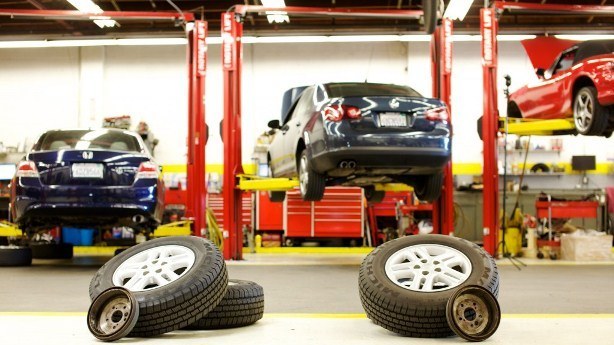Featured
Regular engine tune-ups are crucial for preserving your car's efficiency, enhancing gas efficiency, and prolonging its life-span. Whether you're a skilled auto proprietor or a novice, understanding the key elements of an engine tune-up can help you maintain your cars and truck running efficiently for years. Here are some crucial ideas to lead you through the process.
- Change the Spark Plugs. Ignition system are small but magnificent parts that play an essential function in firing up the fuel-air combination in your engine. In time, they can break or come to be fouled, bring about poor engine performance, decreased gas efficiency, and tough begins.
During a tune-up, examine your ignition system for wear and change them as essential. For most lorries, ignition system ought to be changed every 30,000 to 100,000 miles, relying on the kind and material. Fresh stimulate plugs ensure effective combustion and smoother engine procedure.
- Evaluate and Change the Air Filter. The air filter is your engine's very first line of defense against dirt, particles, and various other impurities. A blocked or dirty air filter can limit air movement, causing your engine to function more challenging and consume even more gas.
Check your air filter throughout a tune-up and replace it if it's unclean or past its recommended solution interval. A tidy air filter boosts engine effectiveness and enhances gas economic situation.
- Check the Gas System. Gradually, your fuel system can accumulate dirt and carbon deposits, minimizing engine performance and fuel performance. Cleaning up the gas injectors and fuel lines throughout a tune-up helps keep correct gas distribution and combustion.
You can use a gas system cleaner or have an expert mechanic carry out an extra comprehensive cleansing. This step is especially valuable for older vehicles or cars frequently driven in stop-and-go web traffic.
- Check the Belts and Hose pipes. Belts and pipes are important for different engine functions, such as running the generator, water pump, and a/c. Throughout a tune-up, check for splits, fraying, or indications of wear on these components.
Change any kind of worn-out belts and tubes to stop prospective failures. A busted belt or dripping pipe can bring about engine getting too hot or loss of power, so addressing these problems promptly is crucial.
- Change the Engine Oil and Oil Filter. Engine oil is crucial for lubricating moving components, decreasing friction, and controling engine temperature. With time, oil comes to be infected and sheds its effectiveness.
As part of a tune-up, change the engine oil and oil filter. Utilize the sort of oil recommended by your vehicle's maker and stay with the suggested modification periods. Tidy oil keeps your engine running smoothly and stops premature wear.
- Check the Battery and Billing System. A healthy and balanced battery is necessary for beginning your vehicle and powering its electrical systems. During a tune-up, examine the battery's voltage and evaluate the terminals for rust. Tidy the terminals if needed and make sure a safe connection.
Furthermore, test the generator and charging system to ensure your battery continues to be charged throughout operation. If your battery is weak or old, consider replacing it to avoid unforeseen breakdowns.
- Flush and Fill Up the Coolant. The air conditioning system regulates your engine's temperature, avoiding it from overheating. Old or infected coolant can lose its performance, causing prospective engine damages.
Throughout a tune-up, purge the old coolant and replace it with a fresh mixture. Likewise, check the radiator, thermostat, and tubes for leaks or damage. Maintaining the cooling system in excellent problem ensures your engine runs at the right temperature level.

- Address Caution Lights and Uncommon Symptoms. Modern cars are outfitted with diagnostic systems that signal you to prospective concerns through dashboard warning lights. If your check engine light or any other advising indications are on, address them throughout your tune-up.
In addition, pay focus to uncommon signs such as strange sounds, harsh idling, or reduced gas efficiency. A professional mechanic can detect and resolve these issues throughout the tune-up process.
- Do Not Neglect the Exhaust System. Your vehicle's exhaust system eliminates hazardous gases from the engine and makes sure correct discharges. Inspect the exhaust system for leaks, corrosion, or damages throughout a tune-up. A defective exhaust system can impact engine performance and lead to ecological and safety and security issues.
- Usage High-Quality Parts and Fluids. When replacing components or complementing fluids during a tune-up, constantly decide for high-quality items that satisfy your lorry's requirements. Making use of subpar parts or wrong fluids can adversely impact your engine's performance and durability.
Conclusion: Normal Tune-Ups Are Key to Engine Health And Wellness. Putting in the time to tune up your engine ensures it operates successfully, conserves fuel, and minimizes the danger of breakdowns. Whether you execute these tasks yourself or rely upon a trusted technician, regular tune-ups are an investment in your lorry's dependability and durability. Adhere to these pointers, and you'll appreciate a smoother, much more reputable ride for years to come.
Latest Posts
Learn About Oil Changes & More: Full Services Guide from Montclare Auto Repair
Discover Special Auto Repair Specials in Chicago at Montclare Auto Repair
Discover Montclare Auto Repair’s Highly Requested Car Care Solutions and Why Drivers Rely On Them
More
Latest Posts
Learn About Oil Changes & More: Full Services Guide from Montclare Auto Repair
Discover Special Auto Repair Specials in Chicago at Montclare Auto Repair
Discover Montclare Auto Repair’s Highly Requested Car Care Solutions and Why Drivers Rely On Them